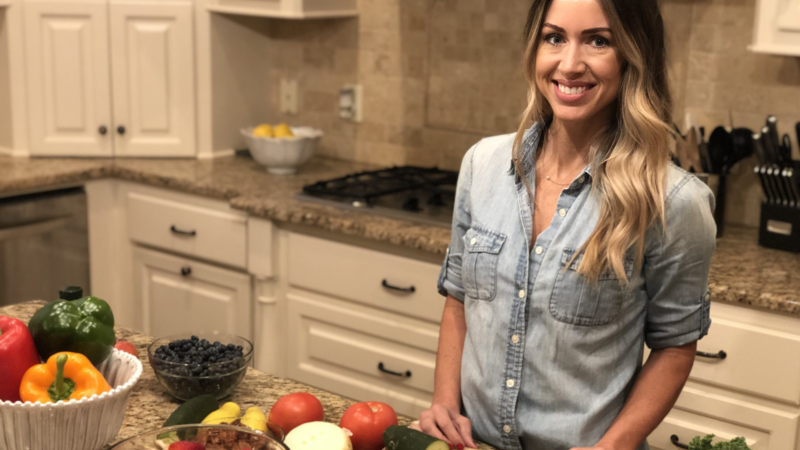A Mississippi Woman Gave Diet Advice Without a License. The State Threatened To Throw Her in Jail.
Mississippi has a reputation for being one of the most obese states in the nation, as well as having one of America's highest incarceration rates. Neither will be improved by treating unlicensed dieticians like serious criminals.

Mississippi Department of Health officials threatened to turn Donna Harris' eight-week weight loss challenge into six months behind bars, but now the state stands accused of putting the First Amendment on a diet.
Harris, a personal trainer and fitness expert, has run a Facebook page since 2018 dedicated to encouraging healthy eating habits. Earlier this year, she launched a small side business, offering one-on-one diet coaching and weight loss tips to anyone willing to pay $99 to participate in an eight-week contest where participants could compete to shed the most pounds. Before it could even start, however, the state government shut it down.
On January 22, Harris received a cease-and-desist letter from the Mississippi Department of Health. Talking about healthy eating on Facebook and getting paid to do it, the department said, could trigger a $1,000 fine and up to six months in jail. In the eyes of the state, Harris was an unlicensed dietician—and apparently enough of a threat to public safety that she might need to be put behind bars.
"When I learned I would have to cancel my weight-loss class, I was devastated," said Harris in a statement. "People were counting on me and they were so excited about learning how to lose weight in a healthy way, and they were so disappointed when I told them I was not going to be able to go through with the program."
Harris wasn't pretending to be a licensed dietician. In fact, her Facebook page and website both specify that she isn't one. Anyone willing to pay her for advice on eating healthier was engaged in a voluntary transaction—one that has little to do with the state government's interests.
In a lawsuit filed this week on Harris' behalf, the Mississippi Justice Institute, a nonprofit law firm, argues that Mississippi's overzealous enforcement of its dietician licensing law violated Harris' First Amendment rights.
Aaron Rice, the group's director, is particularly galled by what happened when Harris asked the state what information she could legally provide without a license. She was told to stick to "government-approved guidelines, like the food pyramid," Rice says. "So you can engage in government-approved speech, but not non-government-approved speech?"
Getting a permission slip to speak freely about healthy diets is no easy task in Mississippi. It requires a bachelor's degree and more than 1,200 hours of supervised practice. Starting in 2024, the license will require a graduate degree. Harris actually has one of those—a master's degree in occupational therapy, to go along with her bachelor's degree in nutrition and food science—but not the one the state will soon require.
Mississippi is not the only state to require that dieticians be licensed, and this is not the first time a state has gone to extreme lengths to enforce its mandatory permission slip regime. In 2017, Florida Department of Health officials ran a sting operation to catch Heather Kokesch Del Castillo giving out unlicensed diet advice online. She, too, was threatened with jail time. A judge rejected a subsequent challenge to the state's dietician licensing laws brought on Del Castillo's behalf by the Institute for Justice, a libertarian law firm.
"Laws that restrict who can give dietary advice clearly implicate the First Amendment," says Paul Sherman, a senior attorney with the Institute for Justice. "If the government wants those laws on the books, it bears the burden of justifying them."
States get away with regulating all sorts of economic activity via occupational licensing laws, in part because of the so-called "professional speech doctrine," a legal practice in which courts have held that governments may limit or compel speech under the guise of regulating business activity. But the U.S. Supreme Court knocked down the professional speech doctrine in a 2018 ruling that overturned a California law requiring pregnancy centers to tell women where they could get an abortion.
Sherman says that the 2018 ruling—National Institute of Family and Life Advocates v. Becerra—was a "game-changer" that has caused lower courts to begin to grapple with how occupational licensing laws may run afoul of the First Amendment too. He predicts there will be more litigation in that space.
Rice notes that Mississippi has a reputation for being one of the most obese states in the nation, as well as one of America's highest incarceration rates—two things that won't be improved by treating unlicensed dieticians like serious criminals.
"Telling healthy adults what they should eat or buy at the grocery store is a freedom we all have as Americans," he says, "whether we are paid for that speech or not."
